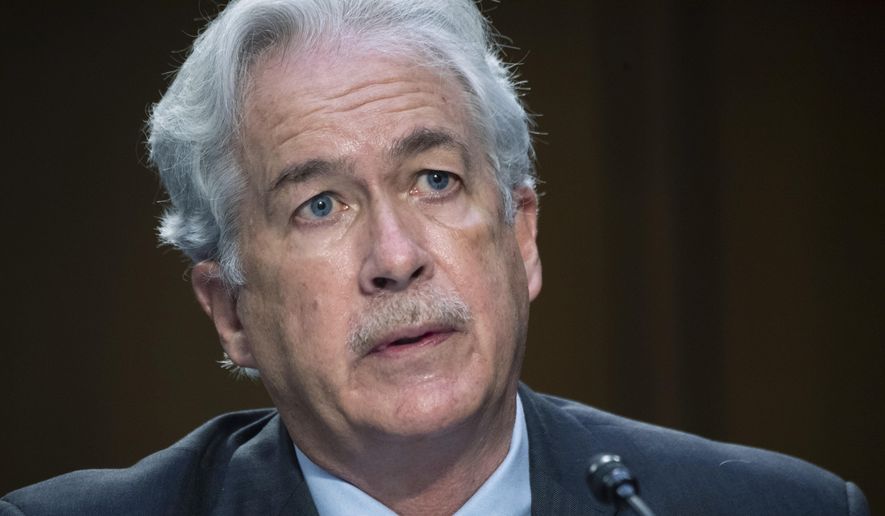Chinese President Xi Jinping is determined to take control of Taiwan but is studying the lessons of Russian military shortfalls in Ukraine before taking action, CIA Director William Burns said Wednesday.
Mr. Burns said he would not underestimate Mr. Xi’s determination to assert Chinese control over Taiwan through military action in the next few years.
The Chinese leader is working to make sure the People’s Liberation Army has the capabilities for a successful invasion of the democratic island, which is about 100 miles off the Chinese coast.
Since taking power in 2013, Mr. Xi has made a takeover of Taiwan a national priority and a focus of the PLA’s large-scale military buildup.
“I think the risks of [an invasion] become higher, it seems to us, the further into this decade you get,” Mr. Burns said Wednesday afternoon at the Aspen Security Forum.
“The Chinese leadership is trying to study the lessons of Russia’s invasion of Ukraine and what it tells them,” he said.
SEE ALSO: China is not the Soviet Union, Beijing’s ambassador tells security conference
The CIA director, a former career diplomat, said his agency’s analysts assess that it is “less the question of whether the Chinese leadership might choose some years down the road to use force to control Taiwan, but how and when they would do it.”
A major lesson for Beijing from Russian President Vladimir Putin’s invasion of Ukraine is that decisive victories cannot be achieved with “underwhelming force.”
The Russian military sent about 190,000 troops into Ukraine in February and expected the government in Kyiv to fall within a week. Instead, Ukrainian military forces fought back fiercely.
China’s political and military leaders think a successful attack against Taiwan will require overwhelming military power, he said.
The Pentagon has been working closely with Taiwan since the Russian invasion of Ukraine to bolster the island’s defenses against Chinese military action.
U.S.-Chinese tensions over Taiwan have been high in recent months because of provocative Chinese military flights and naval maneuvers near the island.
SEE ALSO: Taxpayer cash infusion for the semiconductor industry survives crucial test vote in Senate
After two freedom of navigation operations in the South China Sea, the guided-missile destroyer USS Benfold sailed this week through the Taiwan Strait in a show of support for Taipei, a Navy statement said.
President Biden has said the United States would intervene militarily in support of Taiwan, although the White House later walked back the statement.
The governments of Japan and Australia have said they would join a U.S.-led defense of Taiwan.
In addition to using military force, the Chinese will need to attack Taiwan “in the information space” and prepare for economic and other sanctions from the outside world, Mr. Burns said.
China also would carry out diplomatic operations to drive wedges between the United States and its Asia-Pacific allies.
Some analysts have speculated that Mr. Xi will attack Taiwan after a Chinese Communist Party Congress this fall that is expected to further solidify the Chinese leader’s dictatorial grip. Mr. Burns said that is unlikely.
Regarding Chinese support for Russia, Mr. Burns said the Chinese have stepped up purchases of Russian energy resources but does not appear to be making major sales of arms and military gear to Moscow.
Mr. Xi and other Chinese leaders are “unsettled” by the beating the Russian military has taken in Ukraine, he said, and Beijing is concerned that the invasion has driven European nations closer to the U.S.
China has been seeking to weaken the NATO alliance by providing economic and diplomatic support to many European nations.
Mr. Burns said Mr. Putin has hardened his views on Russia’s drive to become a major world power again and noted that his “appetite for risk has grown.”
Mr. Burns dismissed reports that the Russian leader was ill, either mentally or physically.
“As far as we can tell, he’s fairly healthy,” he said.
• Bill Gertz can be reached at bgertz@washingtontimes.com.




Please read our comment policy before commenting.